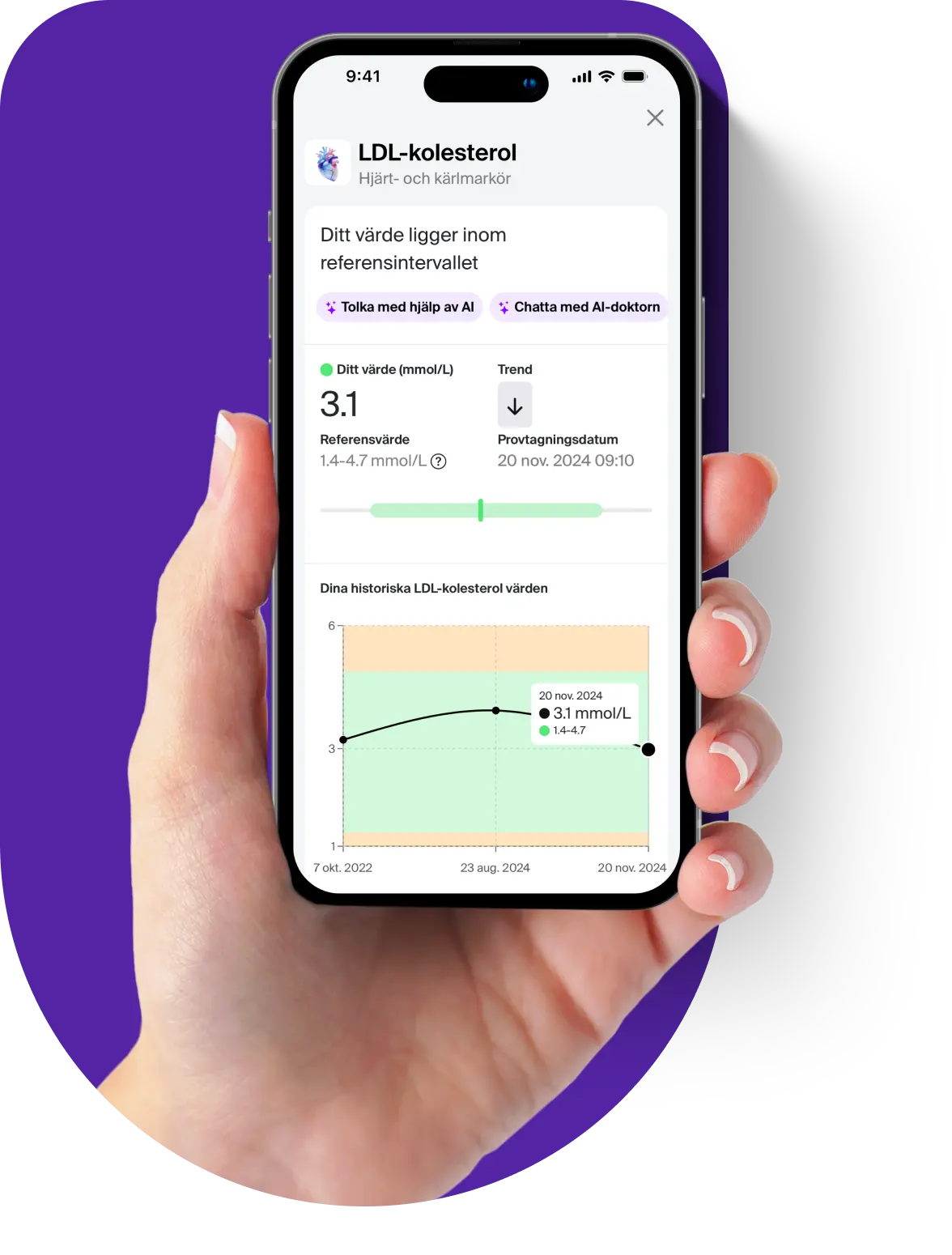Pepsinogen A is a blood test that measures the concentration of pepsinogen A in the blood. This protein is a precursor to the enzyme pepsin, which is produced by chief cells in the gastric mucosa. The analysis is particularly useful in investigating the function and health of the stomach, such as in cases of suspected chronic atrophic gastritis, gastric ulcers or long-term effects of Helicobacter pylori infection. The test can also be used to assess the risk of stomach cancer.
Note! The response time for Pepsinogen A is estimated to be 15 days, analysis is performed 2 times per month.
Analysis of pepsinogen A is an important part of diagnostics to identify changes in the gastric mucosa and can provide valuable information about the stomach's acid production and the condition of the mucosa. Below are the most common uses for fS-Pepsinogen A:
Diagnosis of gastric diseases
fS-Pepsinogen A is used to identify and evaluate various diseases that affect the stomach:
- Chronic atrophic gastritis: A condition in which the stomach lining becomes thinner, which can affect both digestion and nutrient absorption. In atrophic gastritis, high levels of Gastrin are seen in most cases in combination with lower concentrations of Pepsinogen.
- Helicobacter pylori infection: A common bacterium that can cause inflammation and damage to the stomach lining. Pepsinogen A levels may indicate long-term effects of the infection.
- Gastric cancer: Low levels of pepsinogen A may signal an increased risk of developing gastric cancer, especially in the presence of concomitant atrophic gastritis.
- Gastric ulcer disease: Investigation of mucosal function and acid production in patients with peptic ulcer symptoms.
The importance of pepsinogen A as a biomarker
fS-Pepsinogen A is a reliable biomarker for evaluating mucosal damage and acid production in the stomach. Changes in levels can provide important information about stomach health:
- Low levels: Often indicate mucosal atrophy and reduced acid production, which can be linked to chronic gastritis and risk of stomach cancer.
- High levels: May signal increased acid production or other conditions such as Zollinger-Ellison syndrome.
How is the analysis done?
fS-Pepsinogen A is analyzed through a blood sample taken after fasting to ensure reliable results. The sample is analyzed using advanced laboratory methods, such as:
- ELISA (enzyme-linked immunosorbent assay)
- Immunochemical techniques
For whom is an fS-Pepsinogen A test recommended?
This test is suitable for people with symptoms indicating stomach problems, such as persistent heartburn, bloating or pain in the upper abdomen. It is also recommended for individuals with a history of peptic ulcer disease, long-term Helicobacter pylori infection, or a family history of gastric cancer.
Interpretation of fS-Pepsinogen A test results
- Normal levels: Indicates that the gastric mucosa is functioning properly, without significant atrophy or inflammation.
- Low levels: Indicates mucosal atrophy, which may require further investigation and treatment.
- High levels: May signal increased acid production or other pathological conditions affecting the stomach.
A Pepsinogen test can give you a clearer picture of your gastric health. The results can help you identify and treat underlying problems at an early stage.

























